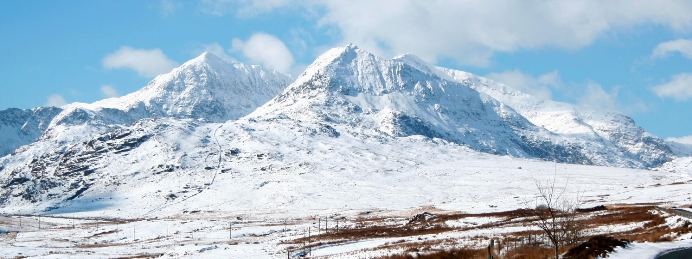A cold arctic air mass will bring snow showers to the region from Sunday onwards
The UK is bracing for a possible disruption of travel and outdoor activities next week, as a cold arctic air mass will bring snow showers to northern and north-east Scotland. The Met Office has issued a yellow warning for snow and ice for parts of the region, advising people to be prepared for low visibility and slippery roads.
What is the forecast for next week?
According to the Met Office’s latest long term forecast, a northerly airflow will bring cold arctic air to the UK from Sunday and into early next week, with snow showers focused across northern areas of Scotland and Northern Ireland. The cold air will be accompanied by strong winds, which could cause further problems for travel.
Through the middle of next week, with cold air firmly in place over the UK, there’s a chance of disruptive snow for some areas as milder Atlantic air pushes in from the southwest. However, with around a week to go until that transition occurs, there’s still plenty of detail to work out.

Met Office Deputy Chief Meteorologist David Hayter explained: “While the initial snow risk from Sunday onwards is looking most likely to be coastal areas in the north of the UK, including North Sea and Irish Sea coasts, there’s an ongoing likelihood of some disruptive snow through the middle to latter part of next week. What we’re keeping an eye on for this disruptive snow is where exactly this milder air from the southwest bumps into the cold air that will be in place over the UK. It’s where these airmasses meet that there’s a likelihood of some substantial snow for some places. At the moment, models are showing us a variety of options for exactly when and how this situation plays out and it’s something we’ll be able to add more details to in the coming days.”
How can people prepare for the cold weather?
The Met Office has advised people to stay alert for any updates on their local weather conditions, as well as checking their travel plans before setting off. The UK Health Security Agency has also issued a Cold-Health Alert, which highlights that possibility of significant impacts for the health and social care sector.
Dr Agostinho Sousa, Head of Extreme Events and Health Protection at UKHSA, said: “The temperatures we will see leading into the weekend can rapidly have a serious impact on the health of those over the age of 65 and those with pre-existing health conditions as it increases the risk of heart attacks, strokes and chest infections. It is therefore vital to check in on friends, family and neighbours to ensure they are well prepared for the cold weather next week.”
People are also urged to dress warmly, wear layers, cover their heads with hats or scarves, drink plenty of fluids, avoid alcohol or caffeine if they feel unwell or have symptoms such as shivering or confusion.
What are some tips for driving safely in snowy conditions?
RAC Breakdown spokesperson Simon Williams said: “With an increasing risk of snow and ice at the start of next week we urge drivers to make sure they travel fully prepared.”
He added: “Drivers should check their tyres before setting off – make sure they have enough tread depth – as well as their lights – make sure they are working properly – as well as their windscreen wipers – make sure they are clean.”
He also advised drivers not to drive through deep snow or slushy puddles – as this could damage their vehicle or cause it to skid – but instead use lower gears – which can help prevent wheelspin – or drive slowly – which can help improve traction.
He concluded: “Drivers should also plan ahead – check traffic updates – avoid unnecessary journeys – allow extra time – keep warm – drink plenty – eat well – stay alert.”


















